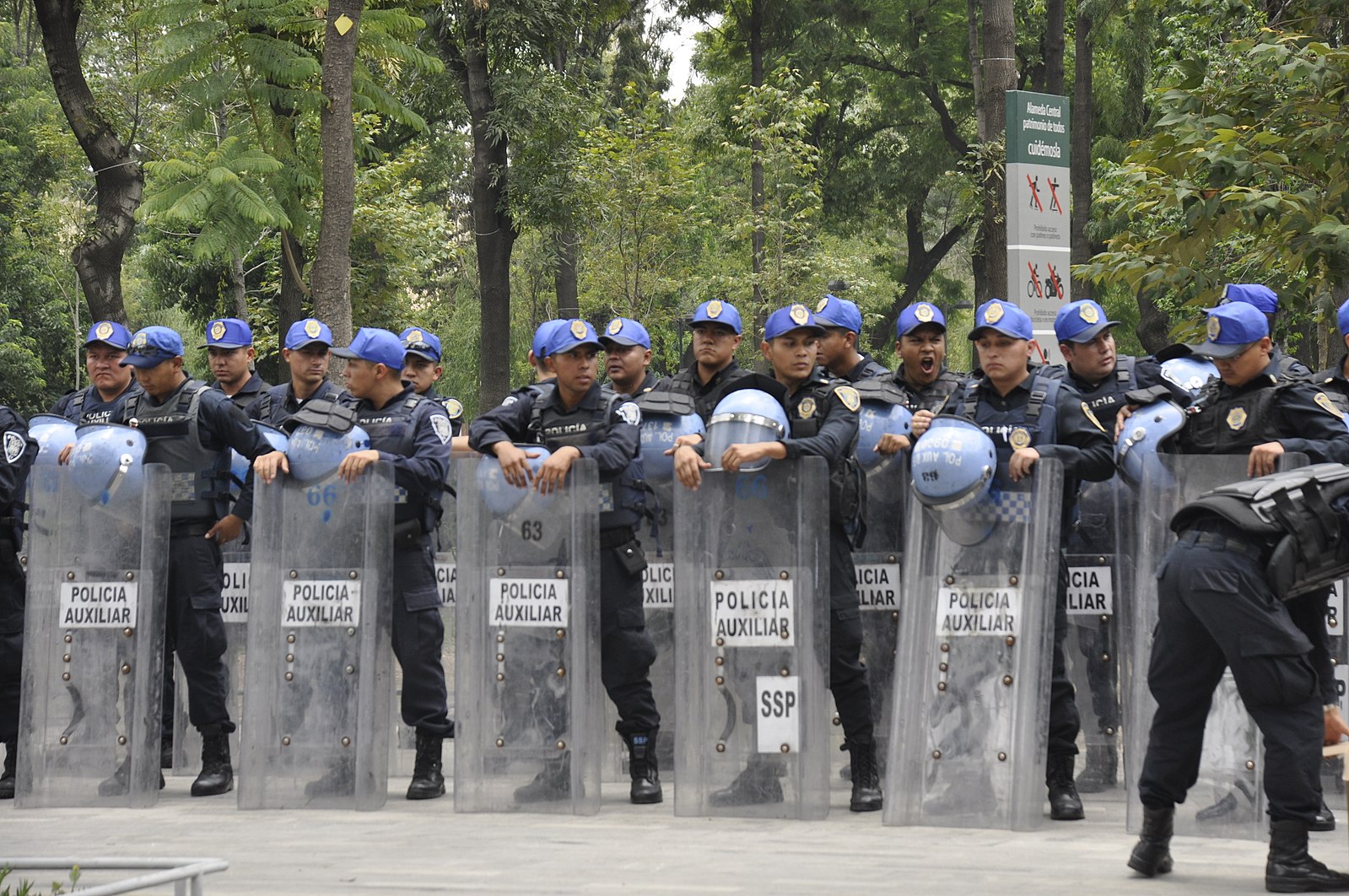The US State Department is failing to monitor its Mexico drug war projects that have cost $3 billion since 2008. Among the lapses in record-keeping by the department’s International Narcotics and Law Enforcement Affairs (INL) sub-agency is the roll-out of a multi-million dollar project surveying Mexican civil society’s perception of the country’s law enforcement, found a new report by a federal watchdog agency.
In 2016, researchers at Stanford University were granted $4.5 million to assess Mexican citizens’ and civil society organizations’ trust in police accountability. It’s part of the State/INL’s Mérida Initiative—a US-Mexico collaboration to support former President Felipe Calderón’s militarized drug war against the so-called “cartels,” criminal networks that academics and journalists argue to be rhetorically exaggerated by the United States and Mexico to facilitate imperialist control and resource extraction.
Since the start of the police accountability project—titled “Citizen Trust and Evidence-Based Police Accountability and Professionalization in Mexico“—INL project managers have been tasked with filing quarterly progress reports relaying performance measures, like the number of surveys conducted, in the case of this project.
But INL’s record-keeping has been a mess, indicates a Government Accountability Office report published on May 12. Instead of reporting required information, like whether about 1,000 surveys had been conducted in the region of Chiapas, INL failed to document the roll-out of the surveys. For example, GAO found that there was “[n]o information on number of citizen surveys conducted in reports we reviewed.”
The State Department sub-agency only provided information that “did not clearly link to the projects’ performance measures.” Some of the reports even seemed to be plagiarized or plainly incorrect, with some simply not “reflect[ing] project activities in those quarters.”
A State Department spokesperson was not able to respond to Filter‘s request for comment by publication time.
The researchers do seem to be implementing the project and abiding by their reporting duties. According to a 2019 end of year research review found on the Stanford University website—not the State Department’s—the project had “conducted more than 4,000 citizen surveys in the metropolitan areas of Tijuana, Mexico City, and Monterrey.” The lead project researcher, Beatriz Magaloni, a Stanford political science professor, told Filter that “[W]e have reported quarterly to our sponsor [State Department/IDL] and conducted our research according to the provisions of the award.”
The findings of the GAO report do not just shine a light on a seemingly Kafkaesque drug war bureaucracy. They also seem to indicate the State Department’s incompetence to accurately assess the efficacy—or otherwise—of its multi-billion dollar drug war in Mexico.
The results of the surveys could be used as indicators of the success of “counternarcotics and special investigations.” They’re looking for the “percentage of people with high- or medium-level of trust in federal investigative agencies.” They would have also assessed the “perceived security where law enforcement trainings were conducted.”
“For over a decade, the Mérida Initiative has funded programs intended to address serious challenges to security and the rule of law,” wrote the GAO report authors. “As the United States continues to support hundreds of Mérida Initiative projects in Mexico, it is important that State/INL monitor these projects carefully and stay well informed of the projects’ performance to ensure that they are as effective as possible.”
Photograph of a Mexico police training in Mexico City by Jarek Tuszyński via Wikimedia Commons/Creative Commons





Show Comments